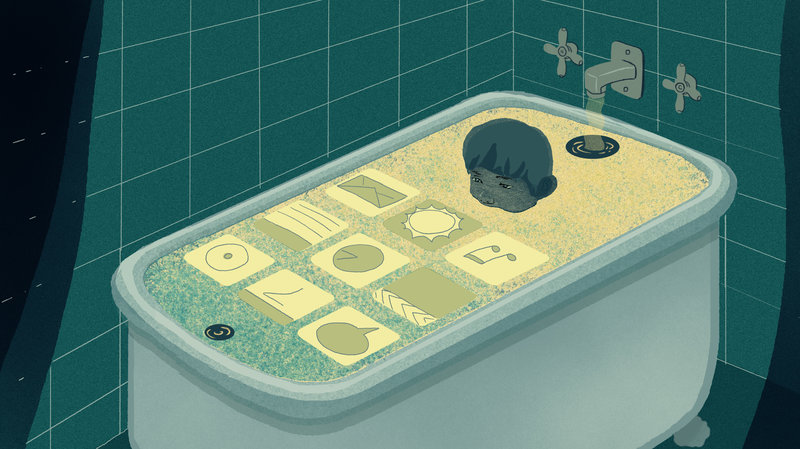
LA Johnson/NPR
Teen suicide. Depression. Bullying. Loss of focus.
Modern tech – in particular, smartphone use – has been studied as a possible cause for all these alarming changes in young people. Yet Brian Resnick of Vox believes the answers aren’t all that simple to discern.
“Public fears about smartphones aren’t limited to mood disorders like depression, or rates of anxiety,” Resnick writes. “There’s panic about gaming or tech ‘addiction,’ and that we’re losing our ability to focus or remember due to the ubiquity of digital tech. These concerns are easily lumped together into one overarching fear: Tech is messing with our minds.
“But take a closer look at the scientific literature,” Resnick continues, “and talk to the researchers who are trying to drill into this issue, and the story grows less certain.”
Many researchers are dismissive of the somewhat anecdotal evidence and believe the link between a digital lifestyle and mental health issues is “overhyped.” Resnick believes it’s time to do better research.
“Scientists need to be asking better, more specific questions, need to collect better data, and need to do it for all kinds of different mental variables,” he writes. “And surprisingly, they won’t be able to unless technology companies like Apple and Google help them.”
There’s no doubt the arrival of smartphones and social media have dramatically changed the lives of the typical teenager. And social scientists are certainly not out of bounds for assuming an impact. As Resnick notes, “Large surveys of youth do find negative, statistically significant associations between screen use and certain measures of well-being, including depressive symptoms.”
Yet many scientists note that the data doesn’t imply causality necessarily, and that the vast majority of these studies were not done with the intention of studying digital tech and mental wellness. “Instead, they’re general assessments of teen behavior and psychology (like drug use, sexual activity, and diet),” Resnick explains.
Another problem arises in the definition of “screen time.” Does that include time spent on social media? YouTube? Laptop time spent doing schoolwork? And with more devices connected to the Internet of Things, does checking the shopping list on your smart fridge count as screen time too? The questions are large.
Resnick believes true answers will come with help from the tech industry, which can deliver meaningful usage data rather than rely on user’s answers to questions about how they engage online.
“With better data, more specific, narrow — and potentially useful — questions about digital technology and mental well-being will emerge.”
Meanwhile, we still have choice. As parents and as technology users we have control over how and what is consumed. The debate – based on some data but also much speculation and a good deal of variability – will continue, as it should. Research will continue, and hopefully get better and more conclusive. While we wait, we can make some choices to limit screen time for ourselves and our families that make us happier, more balanced people.
